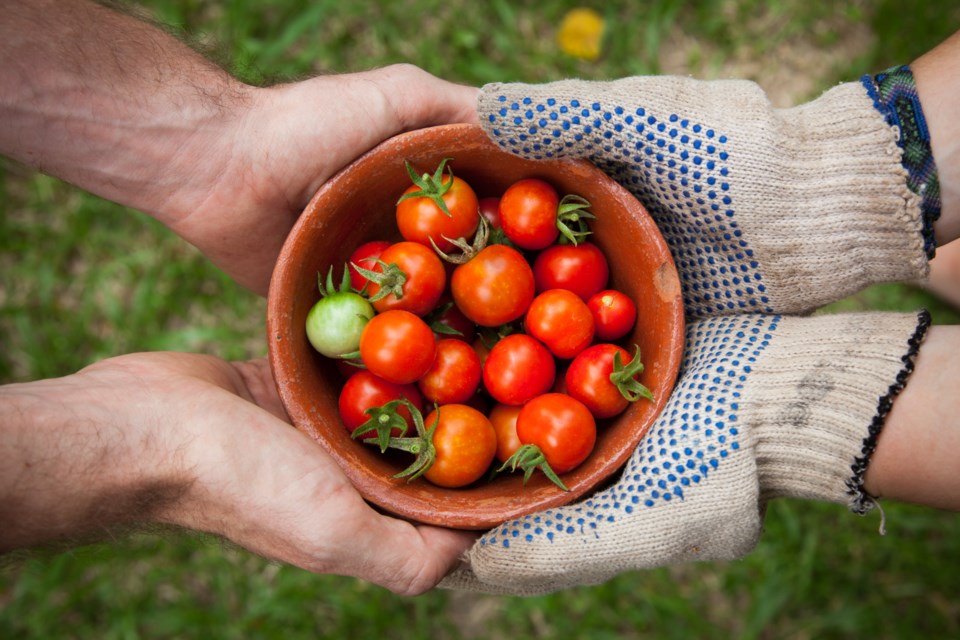Local communities throughout the Southern Georgian Bay are pleading with the provincial government to list community gardens as an essential service.
“It is a huge food security issue and people need to shift away for the narrow mindset that this is a recreational thing,” says Carolyn Letourneau, executive director with Beaver Valley Outreach (BVO), a community-support organization in the Town of the Blue Mountains (TBM).
Community gardens were closed earlier this month as part of the provincial COVID-19 shutdown. The gardens have been labelled by the province as a recreational activity, however many in the community say that is just not the case.
“Shared gardens get food into the local community, particularly into low-income families,” says Marianne Lepa, member and gardener with Free Spirit Gardens, a gardening and advocacy group based out of Collingwood. “Right now, when the food supply is rocky, being able to provide families with fresh produce is vital. Good food is necessary to maintain good health and right now, keeping immune systems healthy is vital.”
Lepa says members of Free Spirit Gardens have been working alongside Sustain Ontario to initiate lobbying the provincial government to remove the allotment of community gardens from the non-essential services list.
“Along with Sustain Ontario, we believe gardens have been miscategorized and lumped in with sports fields and parks, when they should be considered urban agriculture sites,” says Lepa, adding that Sustain Ontario has gone as far as creating rules and regulations that would allow community gardens to maintain all the concerns of physical distancing, while still being able to produce a seasonal bounty of food.
“Sustain Ontario has developed a set of protocols to ensure the safety of people using the gardens. Free Spirit Gardens has a copy of these protocols and are creating a plan for opening the gardens as soon as we are able. Our gardeners have been signing petitions and sharing them among their friends,” Lepa says. “They have been writing to provincial and municipal politicians to indicate their support for opening community and allotment gardens.”
Letourneau agrees that there are ways community gardens can be made safe during COVID-19.
“The community garden is there, it is already built and we have someone who is willing to plant everyone’s garden, so there is total isolation happening,” Letourneau says. “There have been some really great suggestions as to how we could manage the garden, even if different people did go, it would be scheduled slot times and nobody would be crossing paths with one another, there would be a 15-minute buffer in between.”
Letourneau explains that BVO uses the TBM community garden to grow fresh produce that is used in BVO’s food cubby, which supplies approximately 30 to 35 households with food every month.
“We are not a food bank but we do have a food cubby. It is a little more grassroots than traditional food banks. But, if we have it, we will give it,” she says, adding that many times the produce that comes from the TBM community garden is the only access some clients have to fresh produce.
With May right around the corner, Letourneau says she is anxious to see the town or the province take action on this, as the clock is ticking to get seeds in the ground.
“This is something we will continue to advocate for and send some petitions out,” Letourneau says. “I know a few people that have their gardens planted now and certainly by the beginning of May we usually have some seeds in the ground.”
At press time, TBM had not responded to a request for comment.
However, in the neighbouring municipality of Grey Highlands, counllor Danielle Valiquette advocated for the local community gardens by presenting a notice of motion requesting that the provincial government reconsider their stance on community gardens as non-essential.
“Some provinces have already made that change and I would like the Ontario government to do the same,” Valiquette said during a recently held virtual council meeting. “It is my understanding that it was grouped in with recreation, like parks and ball diamonds, and there was little thought put towards the thought that these gardens are not recreational and they do provide food security for many in our community.”
Grey Highlands council supported the appeal to the provincial government asking community gardens be deemed an essential service and be allowed to stay open during the pandemic while following strict safety protocols. A copy of the appeal was sent to MPP Bill Walker, MP Alex Ruff, the provincial minister of agriculture, Grey County and the Premier of Ontario.
"Local community gardens are a way to increase food security. While most community gardeners are growing food for themselves or their families, many plots are used to grow for the local food bank getting nutritious food to people who otherwise can't afford it,” added Lepa.
